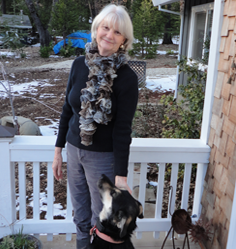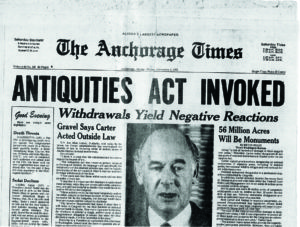
Previously published in 2017 in The Sacramento Bee.
As a reminder, several of the authors in Sisyphus add hyperlinks to their research (real news!) and we invite you to follow relevant links for interesting articles or books.–Ed.
Last Thanksgiving our family, whose political opinions vary, agreed to avoid any conversation that might bring someone’s hackles to rise. Anytime anyone got close to entering that arena, my son-in-law piped up, “So what do you think of those Cubs?” It was our clue to change the subject. It seems most families have an Uncle Charlie, whose opinions the rest of the family agree closely approximate those of Attila the Hun. After the last election, friends who have known each other for over fifty years report they are now no longer speaking. So why has politics become so divisive? What happened to the voice of reason as part of a narrative addressing these issues?
Social scientists point to confirmation bias as a primary cause of our alienation from those whose views do not match our own. Simply put, confirmation bias is the term used for data-fitting information that conforms to our own worldview, while ignoring evidence to the contrary. Rather than making fact-based decisions, cognitive psychologists have learned that people look for and find confirming evidence in support of their positions, and ignore any dis-confirming evidence, according to cognitive phsychologists.
In the February 27th issue of The New Yorker, author Elizabeth Kolbert quotes Jack Gorman and his daughter Sara Gorman, authors of Denying to the Grave: Why We Ignore the Facts That Will Save Us. The Gormans, a psychiatrist and a public-health specialist, contend that confirmation bias has a physiological component. “They cite research suggesting that people experience genuine pleasure—a rush of dopamine—when processing information that supports their beliefs.” Even when that information is incorrect.
Two cognitive scientists, Steven Sloman and Philip Ferbach, agree. “As a rule,” they say, “strong feelings about issues do not emerge from deep understanding.”
Few are immune. Confirmation bias strikes all sides of the political spectrum. So how does a thoughtful person protect against the emotional power of siding with one side, while ignoring evidence-based reasoning?
It requires time to educate oneself about the issues, though most certainly the obligation is there. If one reads The American Spectator, then also read The Nation. If one reads The New Republic, then read The National Review. And know that one’s argument is only as strong as one’s refutation, the acknowledgment of the opposition’s view.
In this day of ‘false facts’–an oxymoron if there ever was one–online sites such as Snopes.com or Factcheck.org offer the truth of the claim. Likewise, it behooves internet users to investigate the source of online material. A Google search quickly reveals how to learn the source of a website. Who is the originator of the site and what is his/her agenda?
Let’s say you believe forest pixies are the source of the dew on your lawn in the morning; the visualization of tiny creatures with mini watering cans overrides your interest in the science of the matter. With over 875 million internet sites available, it’s possible you’ll even find someone who shares this opinion, though you’d be hard pressed to find a consensus of expert opinion to validate this view.
Sadly, with confirmation bias firmly in place, the facts are irrelevant. When one’s views are threatened, instead of a rational discussion of the matters at hand, the end result is often name calling, vitriolic attacks and occasionally even violence.
We can do better. Rational discourse requires a willingness to truly listen without letting our preconceived notions interfere. It requires a willingness to remain open-minded. It requires a respect for facts, whether or not we like what those facts tell us about ourselves.
And it requires a respect for other human beings; a democracy demands no less.













